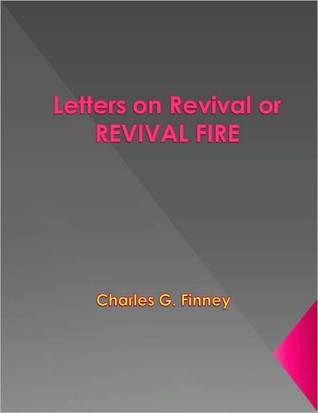- Bible
- Read the Bible
- Bible Versions
- Verse of the Day
- Reading Plans
- Verses by Topic
- Books of the Bible
- Bible Images
- Study
- Commentaries
- Concordances
- Dictionaries
- Encyclopedias
- Sermons
- Bible Atlas & Maps
- BP Wiki
- Devotionals
- Today's Devotionals
- Light of the World
- All Devotionals
- Inspirational Quotes
- More
- Picture Quotes
- Videos
- Inspirational
- Bible Study
- What The Bible Says
- Bible Q&As
- Daily Bread
- Bible by Genre
- Bible Stories
- Random Bible Verse
- Community
- Store
Letters on Revival or REVIVAL FIRE
by Charles G. Finney
To the Students of the Words, Works and Ways of God:
Introduction
Letter 1 Superficial Revivals
Letter 2 Unhealthy Revival Excitement
Letter 3 A Cause Of Spurious Conversions
Letter 4 Errors That Hinder Revivals
Letter 5 Erroneous Revival Preaching
Letter 6 Excitement In Revivals
Letter 7 Fanatical Excitement
Letter 8 Excitement In Revivals
Letter 9 Why So Few Revivals?
Letter 10 Causes Of The Decline Of Revivals
Letter 11 The Impolicy Of Spasmodic Efforts
Letter 12 Hindrances To A Revival Spirit
Letter 13 Objections To Protracted Meetings
Letter 14 Hindrances To Revivals
Letter 15 The Pernicious Attitude Of The Church On The
Reforms Of The Age
Letter 16 The Folly Of Attempting To Sustain True Religion
Without Revivals
Introduction
Letter 1 Superficial Revivals
Letter 2 Unhealthy Revival Excitement
Letter 3 A Cause Of Spurious Conversions
Letter 4 Errors That Hinder Revivals
Letter 5 Erroneous Revival Preaching
Letter 6 Excitement In Revivals
Letter 7 Fanatical Excitement
Letter 8 Excitement In Revivals
Letter 9 Why So Few Revivals?
Letter 10 Causes Of The Decline Of Revivals
Letter 11 The Impolicy Of Spasmodic Efforts
Letter 12 Hindrances To A Revival Spirit
Letter 13 Objections To Protracted Meetings
Letter 14 Hindrances To Revivals
Letter 15 The Pernicious Attitude Of The Church On The
Reforms Of The Age
Letter 16 The Folly Of Attempting To Sustain True Religion
Without Revivals
BUY NOW
Kindle Edition
Published April 13th 2010 (first published March 21st 2010)
© 2025 Bibleportal.com All rights reserved.

Charles Finney (1792 - 1875)
Known as one of the leaders in the Second Great Awakening revival in America. He was a revivalist who called for deep introspection of sin and preaching of the law to bring about sin. He was known to preach 30+ nights on sin and than the last night on Christ to have people flee to Him for mercy. Used greatly in the book: "Revivals of Religion" which is a classic on the subject of revival.He preached on the true Baptism of the Holy Spirit and its necessity. In his revivalistic campaigns he was used of the Lord to bring some estimate over 50,000 souls to the Lord which many were sound converts. There has been questions raised surrounding his theology in the later years of his ministry but this does not discredit that God used him powerfully in revival and for God's kingdom.
Charles Finney was born in Connecticut to an ordinary family and life that gave little hint of the great things God had in store for him. He was a schoolteacher and then a lawyer before his conversion at age 29. Finney was filled with the Holy Spirit on the same day he was saved and immediately began witnessing to friends and family members. More than twenty people were saved in the 24 hours following Finney's conversion. Finney's personal evangelism soon became public evangelism as he began to travel and preach in extended revival meetings. He considered revival to be a natural result of following the instructions God had laid out in His Word.
During Finney's fifty years of preaching, more than 500,000 were saved. He wrote many books, the most enduring of which are The Autobiography of Charles Finney and Lectures on Revival of Religion. After ill health forced him to stop traveling in meetings, he accepted the pastorate of a church in New York City. From 1852 until 1866 he served as president of Oberlin College in Ohio. Although some of his theology was lacking, he was a powerful, Spirit-filled soul winner who brought revival to cities and towns across the eastern United States.
... Show more